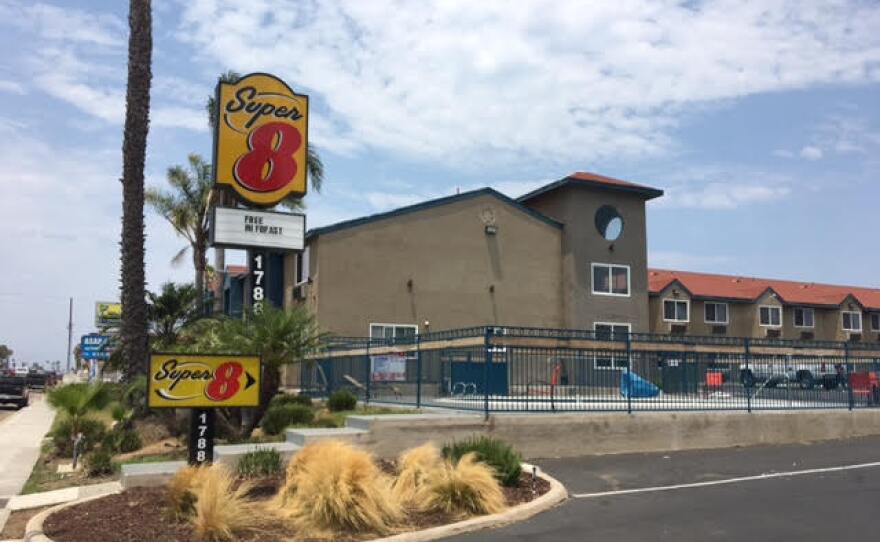The San Diego City Council Monday approved an $11 million plan to purchase a motel in Nestor, which will be converted into transitional housing for ex-convicts who committed low-level crimes.
Under the plan, which drew extensive community opposition and was approved on an 8-1 vote, the city will buy the 61-room Super 8 Motel at 1788 Palm Ave. and remodel the building into a 42-unit, 70-bed residential facility. Barring any delays, renovations would begin in January and the facility would open in about six months, according to city staff.
City Attorney Mara Elliott said the number of misdemeanor drug and theft cases has about tripled since the 2014 passage of state Proposition 47, which decriminalized certain types of offenses. As a result, hundreds of people are cycling through the criminal justice system, she said.
With support from CC & @MaraWElliott we’re expanding SMART to get low-level offenders off the streets for good. TY! https://t.co/eLuB4Z9ZBm
— San Diego's Mayor (@SDMayorsOffice) July 17, 2017
RELATED: San Diego Council To Vote On Motel’s Conversion To Transitional Housing
"Many are older and have had drug problems for decades," Elliott said. "They are among the most vulnerable to crime and exploitation."
She said such people will get "a fighting chance" at the facility, which will house the San Diego Misdemeanants At-Risk Track program, known as SMART.
City staff said a 10-bed SMART pilot program has proven successful, and they want to expand it citywide. Staff said the hotel property proved to be the most viable location in the city to start.
Opponents said the proposal was another example of the South Bay being dumped on by the rest of the city, and would hinder a program to revitalize the Palm Avenue corridor.
Councilman David Alvarez, who represents the area and cast the dissenting vote, said he was convinced that the project would face delays down the road, and pointed to a letter from the California Coastal Commission expressing various concerns.
"The city chose to disrespect the community, and not follow the law and is therefore in the worst possible situation — spending millions of dollars on a property and facility that may be left vacant for years," Alvarez said in a statement.
City staff said the Coastal Commission won't have jurisdiction on the project, since it will have a less-intensive use than the hotel. The state agency has been concerned about a lack of low-cost lodging near California's coastal areas, but city staff said less than 20 percent of Super 8 guests are tourists visiting local beaches.






